- Home
- Russell Blake
JET - Forsaken Page 2
JET - Forsaken Read online
Page 2
Yael slowed at an overflowing dumpster and stopped at a brick wall. The alley was a dead end and didn’t let out on the next street. He looked around and spotted a set of steps that led to a maintenance walkway along the side of one of the buildings, and he coaxed the motorcycle up the stairs. The engine was deafening in the cramped passage.
He picked up speed once on the walkway and then nearly went over the handlebars when a steel access door swung open just ahead of him, and he was forced to clamp down on the brakes with all his might. A frightened man carrying a carton froze at the sight of a madman on a motorbike and then dropped the box and flattened himself against the wall as Yael sped past him in a blur.
The bike bounced out onto the sidewalk and into another busy street. Traffic streamed straight at him on the one-way thoroughfare. Yael ignored the oncoming cars and pointed the bike at the lane between the vehicles, determined to evade the helicopter while he still had a chance.
A traffic light ahead turned yellow, and he gave the throttle a brutal twist and downshifted to coax an additional burst of power as the onrushing cars honked and swerved to avoid hitting him. The grill of a large delivery truck loomed ahead, and he jumped the curb again to avoid being flattened, gunning the gas to make the light. He barely missed a lamppost on the corner and blew through the intersection – and then he was sailing through the air, weightless, the motorcycle somersaulting away from him as though in slow motion, the sky a blue so deep it resembled an endless sea, and the blinding pain that had shot through his body a moment before replaced by numbness as he stared at the heavens in wonder.
Traffic screeched to a standstill and a woman on the sidewalk screamed in horror, but Yael barely registered any of it as he completed his arc, strangely at peace for the first time in forever. When he hit the pavement like a rag doll, his skull and upper body were instantly liquefied by the force of the landing, and he was dead before the first bounce. Nearby, steam hissed from beneath the hood of the yellow delivery van that had ended his run, the front crumpled as though struck by a giant fist.
Chapter 2
Subotica, Serbia
Matt stepped back from the second-story boardinghouse window and shook his head. Jet looked up from where she was reading to Hannah from a children’s book and offered him a smile.
“Still a nightmare?” she asked.
“Streets are teeming,” he replied.
“That’s good. Nobody’s going to be looking for us in this chaos.”
They’d decided to make their way to the Hungarian border, where refugee camps had sprung up to accommodate the hundreds of thousands of refugees trying to enter the European Union, fleeing the destruction in their countries from nonstop wars in Syria and Iraq. The humanitarian crisis presented an opportunity for them to blend in with the masses, as all of the systems at the borders were overloaded from the endless tide of desperate humanity. Modern dangers to Jet and Matt such as facial recognition software and fingerprint databases had been overwhelmed by the crisis and abandoned early on in favor of processing the refugees as speedily as possible.
Of course, as in all conflicts, there were opportunities for unscrupulous operators, and they’d assumed this situation would be no different. After nosing around for a few days, they had learned that the city had a thriving underworld catering to the migrant trade, able and willing to supply anything one could want, assuming they could pay. Guns, paperwork, drugs – all were available for a price.
They’d decided to become Syrian refugees rather than attempting to cross into Hungary using their current passports upon learning that migrants were processed differently, with fewer safeguards and nonexistent checks. Most had no paperwork and thus would be issued the equivalent of a passport after a cursory check, making it relatively straightforward to acquire and use that documentation to enter the EU under the radar.
Many of the Syrians had European features, so Matt’s and Hannah’s appearances wouldn’t stand out, making their story plausible as long as they kept silent; neither Matt nor Hannah spoke Arabic, so Jet was the only one who could withstand questioning. They’d agreed that Matt would claim to be mute and deaf if confronted, and Hannah was too young to have developed much in the way of language skills and could be claimed to be in shock from the war, if pushed.
But now they needed to source a reliable provider of papers so they could continue on their way, ultimately to Italy or Portugal, where many areas had little in the way of modern systems and were much as they had been for centuries, enabling them to remain incognito. Perhaps life in a hill town of Umbria or a village in Sicily would provide the tranquility and safety that had eluded them so far. At least, that was the hope.
“Much as I’m enjoying the charms of greater Subotica, we need to keep moving, Matt,” Jet said.
“I know. I think the landlady will be able to help.”
They’d already spoken with the innkeeper, a heavyset woman in her forties whose pores exuded the remnants of the prior evening’s libation and whose flushed complexion left little doubt about how she spent her leisure hours. After some broad hints by Jet, she’d promised to touch base with her cousin, who had set up shop crafting travel documents for those who didn’t want to spend months in the squalor of the camps, waiting for the real thing. That had been yesterday, but when they’d gone down for lunch, there had been no sign of the woman. Her replacement, a truculent younger version of herself, eyed them like they were lice.
They had deliberately chosen a boardinghouse filled with the more fortunate refugees – escapees from their region who had managed to land in Serbia with at least some money. The camps were grim, disease-infested hellholes, and anyone who was able to avoided them until their wherewithal ran out. Once in Serbia, Jet had adopted the modest attire of a Syrian woman and scarcely drew a second glance when out of the room, but even so she was keeping to the boardinghouse as much as possible, reluctant to risk any altercations with locals who were clearly fed up with the never-ending procession of misery.
A rap at the door startled them, and Jet handed Hannah’s book to Matt before rising and moving to the door.
“Yes?” she asked, her Serbian deliberately rusty sounding.
A muffled voice answered through the door. “It’s Elena. I have news.”
Jet slipped the bolt free and opened the door to the innkeeper. Elena hesitated and then stepped inside. “My cousin agreed to help you. I can take you to him now.”
Jet nodded. “Great. Let me get my things, and I’ll meet you downstairs. How far away is he?”
“Not very. We can walk.”
Jet waited until Elena left and then gathered some of her cash and slipped it into the pocket of her cargo pants. She covered her clothes with a dark abaya, pulled a hijab over her head, and turned to leave.
“You think this is legit?” Matt asked, his brow creased.
“She’s got no reason to con us. I mean, besides the usual, I suppose. Only one way to find out.”
“Be careful.”
Jet bent down to Hannah and smoothed her hair. “Mama will be back in a little while. Don’t give Matt any trouble.”
Hannah nodded, her face angelic.
Jet swallowed hard and left her loved ones in the room. She heard the bolt snap back into place behind her and walked down the seedy hallway to the stairs. The building was easily a century old, half of it spent without any maintenance or cleaning that she could see. Music from one of the rooms echoed off the walls, a caterwaul that sounded like two cats fighting while someone pounded on a barrel. Jet’s nose wrinkled at the stink of food seeping from beneath the doors, a clear violation of Elena’s rule against cooking in the room that she seemed oblivious to as long as the boarders paid their rent on time.
The innkeeper was waiting in the squalid lobby and set off at a march down the cracking sidewalk before Jet’s feet had left the stairs, leaving Jet to catch up as best she could. They walked three blocks down a main street, turned onto a smaller tributary, and conti
nued toward the town center, past distinctly Turkish-influenced architecture, all columns and arches and spires.
Elena stopped at a run-down building where several toughs were lounging on the stoop, smoking and commenting on the passersby. One nodded to her and looked Jet over with eyes the color of lead. Jet averted her gaze, ignoring the obvious distaste in the young man’s expression. His barely concealed hatred wasn’t her problem as long as he didn’t start trouble.
“Got another rat, eh?” the man said. The other laughed harshly, his voice ravaged by alcohol, cigarettes, and probably drugs, judging from his junkie pallor.
“She speaks some Serbian,” Elena snapped, her tone hard.
The punk shrugged. “I don’t care if she understands or not.” He nodded to the entry. “He’s inside.”
Elena pushed past them and Jet mounted the steps, determined not to retaliate if one of the toughs made a grab at her. Fortunately, nobody did, and moments later they were in a run-down tenement that was only slightly better than the inn. Elena powered toward the worn stairs and mounted them with surprising energy for a big woman, trailing a faint scent of alcohol from her afternoon bracer. Jet accompanied her to the second level, and they stopped at the third door from the landing. Elena glanced at Jet and rapped on it twice with knuckles the size of walnuts.
“Yeah?” a male voice yelled from inside.
“It’s me. Open up,” Elena called.
Ten seconds later the door swung wide, and a rail-thin man in his early thirties, his hair greasy and a smoldering cigarette hanging from his lips, stared at them for a long beat. Elena brushed past him and he stepped back for Jet to step inside, his eyes roving over the hallway as though expecting to be attacked at any moment.
He locked the door behind them and joined them in a postage stamp-sized living area with the world’s saddest sofa against one wall and a dingy area rug on the hardwood floor. The sunlight filtering through filthy gauze curtains seemed somehow tainted by the atmosphere. The man took a seat on a rickety chair while Elena and Jet sat opposite him on the sofa’s stained fabric.
“I’m Eric. You need papers?” he said, the cigarette never leaving his lips.
Jet nodded. “That’s right. We want into the EU.”
Eric named a relatively reasonable price, which instantly put Jet on guard. If the forger sensed her caution, he didn’t show it, his air disinterested but his body language anxious. “Half now, half when you pick up the documents.”
“How long will it take?” she asked.
“Two days. You have the money?”
“Barely. What about photos?”
“You need to get some taken at one of the shops. Bring them to me when you come to pick up the papers. It only takes a few minutes to attach them.” Eric offered an oily smile devoid of humor. “Everyone knows what size. It’s a big business these days.”
“Can I see a sample of the work?” Jet asked.
Eric’s eyes hardened. “I don’t hand out samples. You want me to make the docs or not? If no, you know where the door is.”
“No offense, but I want to make sure they’ll hold up.”
Eric gestured impatiently to Elena. “Where do you find these people? Why are you wasting my time?”
Elena rose, her expression angry. “She said she needed help. How was I to know?”
Jet softened her tone. “Everybody calm down. If you guarantee the work, that’s good enough for me.”
Eric smirked. “This isn’t my first time. Now you have the money, or are we done? I’ve got things to do.”
Jet looked at the overflowing ashtray and the half-full bottle of beer on the coffee table, but kept her expression neutral. “I have it,” she said, and removed the pre-counted wad from her pocket and slid it across to Eric, who counted it carefully before nodding once.
“What do you want on the documents?” he asked.
Elena walked to the door.
“I’ll leave you to it. You can find your way to the boardinghouse without me?” she asked Jet.
“Yes. I remember the way.”
Ten minutes later Jet was back on the street, taking in the surroundings, an uneasy feeling in her stomach. She ignored the leers from the toughs and made her way down the sidewalk toward the main boulevard, where the streets were crowded with refugees wandering with the aimless shuffle of the hopeless. Jet paused at the corner, aware that she was being watched from several of the windows, the frowning women’s faces behind the glass damning her wordlessly for being there.
“Only a little while longer,” she muttered to herself. While her situation was temporary, a cover she could discard whenever she liked, for the rest this state of purgatory was their constant reality, and she again felt in her gut the anxiety that had troubled her since their arrival. The locals and the refugees had established a cautious truce, but nobody was fooled that the migrants were welcome. Her hope was that they could get their documents and make it across the border without incident, and once en route, leave the enmity behind. While she could appreciate how the Serbians felt, she recognized a powder keg when she saw one, and would exhale in relief when they were in Hungary and free to travel to their ultimate destination without the constant stigma and barely contained hostility at every turn.
She picked up her pace, rounded the corner, and melted into the crowd, unremarkable in the wave of humanity and grateful for the anonymity her disguise afforded. After a week on the run from Romania, being just another faceless cypher carried with it a freedom she hadn’t felt since Bosnia – a freedom that had proved to be as illusory as it was seductive.
Chapter 3
Baku, Azerbaijan
Moonlight silvered the surface of a puddle in the middle of an alley only footsteps from the waterfront. The distinctive smell of the Caspian Sea drifted along the narrow street, carried by a light wind that whistled through the beams of a construction site at one end of the block. Fog had begun rolling in from the water, and its ghostly tendrils seeped across the pavement, its timeworn cobblestones slick from condensation. The area was deserted at the late hour except for the slinking form of a half-starved feline nosing through sacks of refuse on the sidewalk in search of a midnight meal.
A black Mercedes sedan pulled to a stop at the back door of a closed nightclub, and a pair of overfed men in their fifties emerged from the rear of the vehicle and strode to where a guard was waiting in the shadows, the bulge of a shoulder holster wrinkling his suit jacket. The men nodded to the sentry, and he looked them up and down before stepping aside and returning his attention to the darkened street.
Inside the club, another gunman with a pockmarked face directed the arrivals down a hall to a gray steel door, where still two more guards waited with submachine guns, their expressions those of experienced killers, their eyes slits in stony countenances. The taller of the gunmen regarded the pair and grunted.
“Inside,” he said, his sandpaper voice gruff.
The second guard pushed the door open, and the new arrivals entered a storage room where a dozen men were seated around a battered oval conference table. A groaning ventilation system struggled to clear a haze of cigarette smoke that hung over the gathering like a shroud. A hatchet-faced man at one end of the table looked up as they entered, his wire spectacles flashing in the light from the overhead fluorescent bulbs, and nodded.
“Gentlemen, good to see you. Have a seat, and we can get this show under way.”
The speaker waited as the men settled in before continuing, taking the room’s measure with a jaundiced eye. Yashar Bahador was an experienced politician who was playing a high stakes game for the future of the country. As the highly recognizable candidate of the Nationalist Party, he was hated by the status quo almost as much as he was feared by the cronies of the ruling Labor Party – a collection of elite billionaires and criminal oligarchs who ran the government from behind the throne.
He cleared his throat and sat back, allowing his gaze to settle on each of the group before speaking
again.
“As I was just saying, we’ve reached a crisis point for our future. This is the election where the current regime must be overthrown. We cannot afford any more of the corruption that’s typified the last decade. The economy is in shambles, and the disparity between the rich and poor grows wider with every hour. Most are no better off than they were under Soviet rule, living hand-to-mouth in near poverty. It’s unconscionable, given the wealth of natural resources we hold, that most of the prosperity is so tightly concentrated in a few greedy hands.”
A stern figure at the opposite end of the table, his face deeply lined and swarthy, his high forehead topped by silver hair slicked back like a cinema villain, raised an eyebrow at the pronouncement. “Yes, yes, Yashar, we are all aware of the situation. You don’t need to carry on like we’re at a fund-raising rally. Why have you called us together at this late hour in this…place?”
General Pasha Guliyev had the no-nonsense delivery of a man accustomed to command, and Bahador allowed the question to hang in the air for several seconds before responding. He sat forward and folded his hands in front of him on the table, checking the time on a cheap metal watch as he considered his words. Instead of lashing out at the general, he looked to his right, where a younger man in an impeccable foreign-tailored suit was slouched in his chair. “Sergei?”
“The president is not going to relinquish power voluntarily,” Sergei said. “We’re already receiving reports of preparations to rig the election. That cannot be allowed to happen.”
Guliyev’s frown deepened. “We’ve heard the same thing. But what can be done?”
Bahador matched his scowl. “We’re protesting to international organizations chartered with ensuring the vote tallying is fair, but the administration seems unfazed. Their actions are increasingly bold, and coupled with the clampdown on dissidents, it’s looking like they will succeed in their power grab.”

 Night of the Assassin
Night of the Assassin Jet
Jet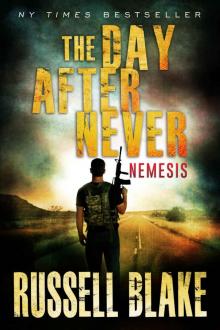 The Day After Never - Nemesis (Post-Apocalyptic Dystopian Thriller - Book 9)
The Day After Never - Nemesis (Post-Apocalyptic Dystopian Thriller - Book 9)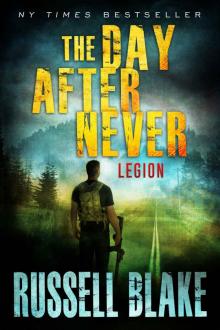 The Day After Never - Legion (Post-Apocalyptic Dystopian Thriller - Book 8)
The Day After Never - Legion (Post-Apocalyptic Dystopian Thriller - Book 8)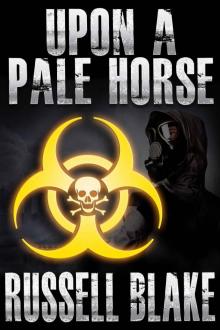 Upon A Pale Horse (Bio-Thriller)
Upon A Pale Horse (Bio-Thriller)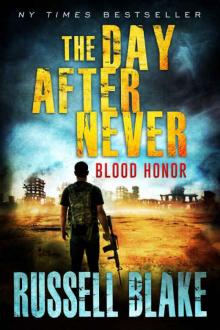 The Day After Never (Book 1): Blood Honor
The Day After Never (Book 1): Blood Honor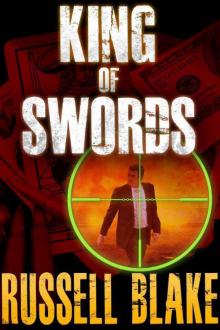 King of Swords a-1
King of Swords a-1 The Day After Never Bundle (First 4 novels)
The Day After Never Bundle (First 4 novels) Emerald Buddha (Drake Ramsey Book 2)
Emerald Buddha (Drake Ramsey Book 2)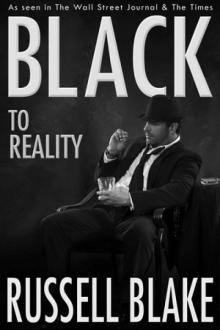 BLACK to Reality
BLACK to Reality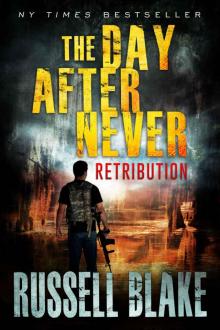 The Day After Never - Retribution (Post-Apocalyptic Dystopian Thriller - Book 4)
The Day After Never - Retribution (Post-Apocalyptic Dystopian Thriller - Book 4) Ramsey's Gold (Drake Ramsey Book 1)
Ramsey's Gold (Drake Ramsey Book 1)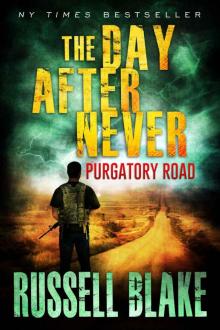 The Day After Never (Book 2): Purgatory Road
The Day After Never (Book 2): Purgatory Road JET - Ops Files
JET - Ops Files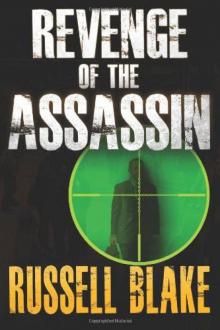 Revenge of the Assassin a-2
Revenge of the Assassin a-2 Requiem for the Assassin - 06
Requiem for the Assassin - 06 The Geronimo Breach
The Geronimo Breach Sahara
Sahara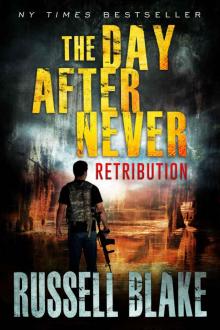 The Day After Never (Book 4): Retribution
The Day After Never (Book 4): Retribution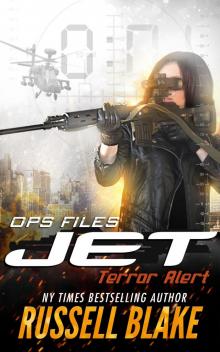 Ops Files II--Terror Alert
Ops Files II--Terror Alert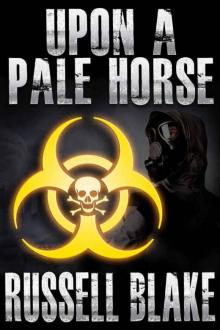 Upon A Pale Horse
Upon A Pale Horse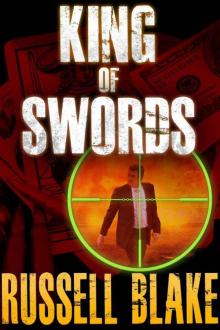 King of Swords (Assassin series #1)
King of Swords (Assassin series #1) A Girl Apart
A Girl Apart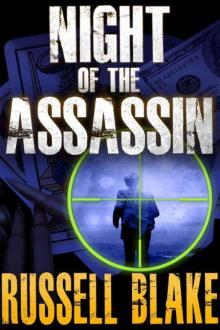 Night of the Assassin: Assassin Series Prequel
Night of the Assassin: Assassin Series Prequel Rage Of The Assassin
Rage Of The Assassin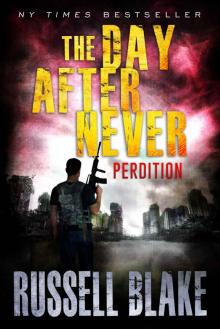 The Day After Never - Perdition (Book 6)
The Day After Never - Perdition (Book 6)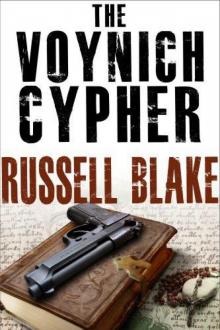 The Voynich Cypher
The Voynich Cypher JET, no. 3
JET, no. 3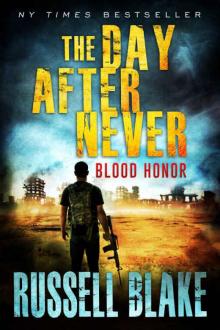 The Day After Never - Blood Honor (Post-Apocalyptic Dystopian Thriller)
The Day After Never - Blood Honor (Post-Apocalyptic Dystopian Thriller) 9 More Killer Thrillers
9 More Killer Thrillers The Goddess Legacy
The Goddess Legacy Fatal Exchange
Fatal Exchange Fatal Exchange (Fatal Series Book 1)
Fatal Exchange (Fatal Series Book 1) JET - Forsaken
JET - Forsaken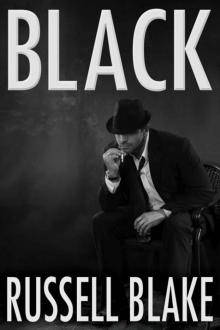 Black
Black Jet j-1
Jet j-1 Betrayal j-2
Betrayal j-2 Jet 04: Reckoning
Jet 04: Reckoning Jet 03: Vengeance
Jet 03: Vengeance Fatal Deception
Fatal Deception A Girl Betrayed (A Leah Mason suspense thriller Book 2)
A Girl Betrayed (A Leah Mason suspense thriller Book 2)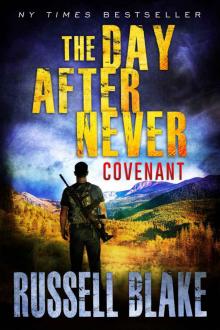 The Day After Never - Covenant (Post-Apocalyptic Dystopian Thriller - Book 3)
The Day After Never - Covenant (Post-Apocalyptic Dystopian Thriller - Book 3) JET II - Betrayal (JET #2)
JET II - Betrayal (JET #2)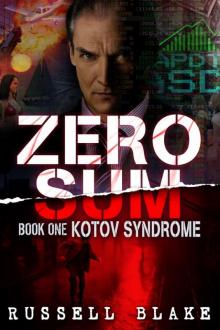 Zero Sum, Book One, Kotov Syndrome
Zero Sum, Book One, Kotov Syndrome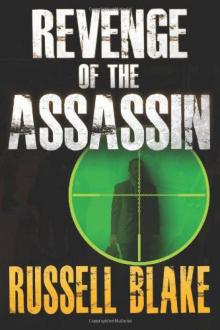 Revenge of the Assassin
Revenge of the Assassin The Day After Never - Insurrection (Book 5)
The Day After Never - Insurrection (Book 5)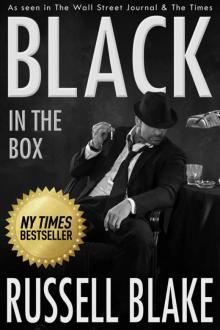 BLACK in the Box
BLACK in the Box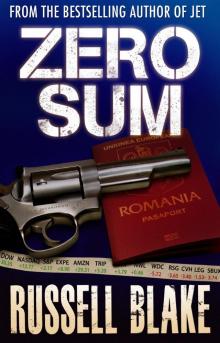 Zero Sum
Zero Sum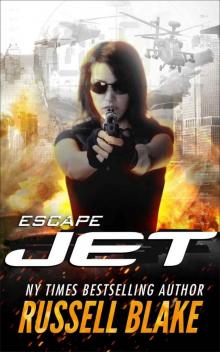 JET - Escape: (Volume 9)
JET - Escape: (Volume 9) The Manuscript
The Manuscript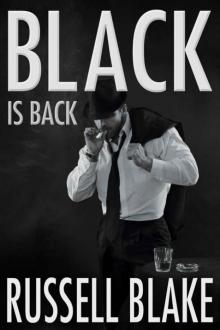 BLACK Is Back
BLACK Is Back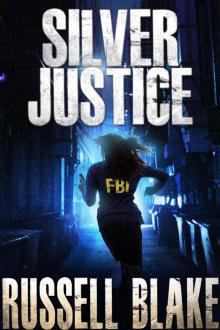 Silver Justice
Silver Justice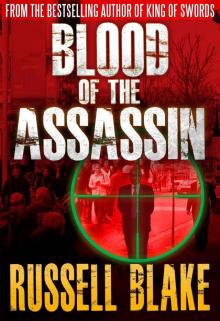 Blood of the Assassin
Blood of the Assassin Rage of the Assassin: (Assassin Series #6)
Rage of the Assassin: (Assassin Series #6)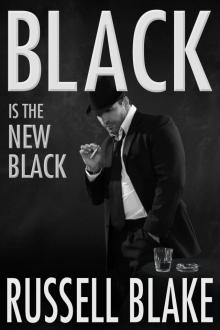 BLACK Is the New Black
BLACK Is the New Black